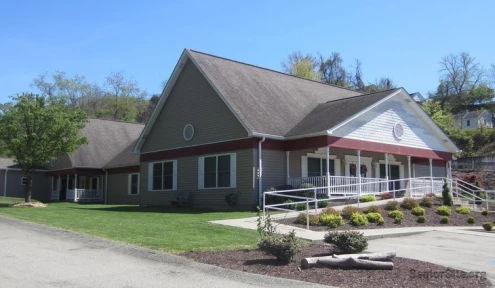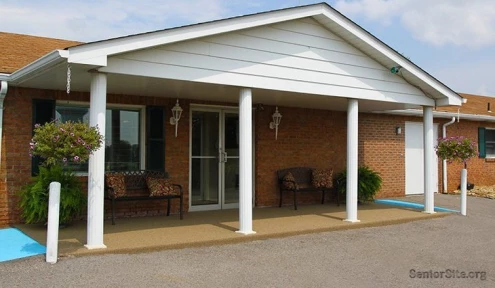Adult day care centers serve over 260,000 American families, providing supervised care during daytime hours when full-time nursing homes or home care prove impractical. These centers offer structured programs for seniors while allowing them to maintain their home routines.
The centers operate primarily during weekday business hours, giving families flexibility in care arrangements. Services range from basic supervision to specialized medical support, depending on individual needs and facility type.
Key aspects covered in this guide:
- Types of day care programs and service models
- Safety standards and quality metrics
- Daily costs and financial assistance options
- Center evaluation criteria
- Common warning signs
Adult Day Care Center Types
Adult day care centers operate under two primary models, each serving distinct care needs. Social adult day care facilities provide basic supervision and activities, including medication reminders, meals, and personal care support. Medical day care centers, also known as adult day health care, deliver additional clinical services like skilled nursing and wound treatment.
Memory care programs target seniors with cognitive decline, particularly those diagnosed with Alzheimer’s disease or related dementias. These specialized units maintain secure environments to prevent wandering while offering therapeutic activities and memory support programs. Staff members receive focused training in dementia care techniques.
The centers’ flexible scheduling accommodates both short-term and ongoing care needs. Most facilities operate weekdays during standard business hours, though some extend their schedules for working families. Medical programs provide intensive health services including physical therapy and comprehensive personal care, while social models emphasize group activities and peer interaction.
Quality and Safety Standards at Day Care Centers
State regulators require adult day care centers to maintain specific licenses and certifications, reports show. Medical facilities need additional permits beyond standard certification requirements. Safety experts recommend reviewing current licenses and recent inspection reports during facility tours.
Staff-to-participant ratios range from 1:4 to 1:10 based on care levels. Centers providing memory care services must maintain stricter 1:4 ratios. Medical day care facilities require registered nurses on staff, while social centers employ trained caregivers.
Quality centers exceed basic requirements through comprehensive staff training programs covering:
- Emergency response protocols
- Care techniques
- Infection control
- Medication oversight
Federal guidelines mandate minimum space requirements of 60 square feet per participant. Centers must implement:
- Emergency evacuation procedures
- Medication management systems
- Health monitoring protocols
Safety records show leading facilities conduct regular emergency drills and document all incidents. Staff handling of daily routines and emergency protocols remains a key indicator of facility quality.
Adult Day Care Costs and Payment Options
Adult day care centers charge a national median rate of $98 per day in 2024. State data shows significant cost variations, with North Dakota facilities averaging $185 daily while Alabama and Texas centers charge $46 and $52 respectively. Monthly expenses typically reach $2,120 for families using these services.
Original Medicare provides no coverage for adult day services, though some Medicare Advantage plans offer limited benefits. Long-term care insurance policies may cover day care costs, depending on specific plan terms.
Federal records show Medicaid covers adult day care across all 50 states and Washington D.C.. Available funding sources include:
- Medicaid HCBS Waivers for higher-income households
- VA benefits covering day health care for eligible veterans
- State assistance programs operating in 39 states
Cost comparisons reveal adult day care’s economic advantage over alternatives. While centers average $98 daily, home health aides cost $213 per day. Nursing facilities charge up to $330 daily for private rooms.
Selecting an Adult Day Care Center
Quality adult day care centers require thorough evaluation across multiple criteria. Site visits reveal key indicators of facility standards and care quality. Staff engagement levels, participant interaction, and facility maintenance serve as primary assessment factors.
Common warning signs at substandard facilities include:
- Participants confined to wheelchairs without regular transfers
- Television viewing replacing structured activities
- Unqualified staff handling medications
- Poor communication about participant status
- Limited social programming
Most facilities offer trial visits before long-term enrollment. These periods allow families to evaluate:
- Daily programming structure
- Care staff interactions
- Social environment
- Activity engagement
Operating hours vary between centers, with some providing extended schedules while others follow fixed timeframes. Leading facilities accommodate initial adjustment periods and address transition concerns.
Adult Day Care Centers: Key Findings
Adult day care centers provide daytime supervision while allowing seniors to maintain home residence. Data shows these facilities bridge critical care gaps between full independence and nursing homes.
Quality facilities maintain specific staffing ratios and structured programming schedules. Centers must meet state licensing requirements and safety protocols while providing clear family communication channels. Medicaid coverage extends across all states, with VA benefits and state programs offering additional financial support.
Facility selection requires thorough evaluation of care standards, staff qualifications, and activity programming. Trial periods allow families to assess care quality and participant engagement before long-term enrollment. Centers offering flexible scheduling and specialized care programs show higher success rates in meeting diverse family needs.
FAQs
Q1. What types of adult day care centers are available? There are two main types: social adult day care centers, which focus on companionship and activities, and medical day care centers (also known as adult day health care), which offer additional professional medical support. Some centers also provide specialized memory care programs for individuals with cognitive challenges.
Q2. How much does adult day care typically cost? The national median cost for adult day care centers in 2024 is $98 per day, or around $2,120 monthly. However, costs can vary significantly by location, with some states averaging as low as $46 per day and others as high as $185 per day.
Q3. Are there financial assistance options available for adult day care? Yes, there are several options. Medicaid covers adult day care services in all 50 states and Washington D.C. Veterans Benefits may cover adult day health care for eligible veterans. Additionally, 39 states offer non-Medicaid assistance programs, and some long-term care insurance policies include coverage for adult day care.
Q4. What should I look for when choosing an adult day care center? Look for centers with proper licensing, qualified staff, and appropriate staff-to-participant ratios (typically between 1:4 to 1:8). Observe the cleanliness and safety of the facility, the engagement level of participants, and the variety of activities offered. Also, consider the center’s hours and whether they align with your needs.
Q5. Can I try out an adult day care center before committing? Most centers offer trial periods or allow a few trial visits to assess if it’s a good fit for your loved one. During this time, you can observe how your family member responds to the daily routine, staff interactions, and activities. It’s an excellent opportunity to evaluate whether the center meets your needs before making a long-term commitment.












